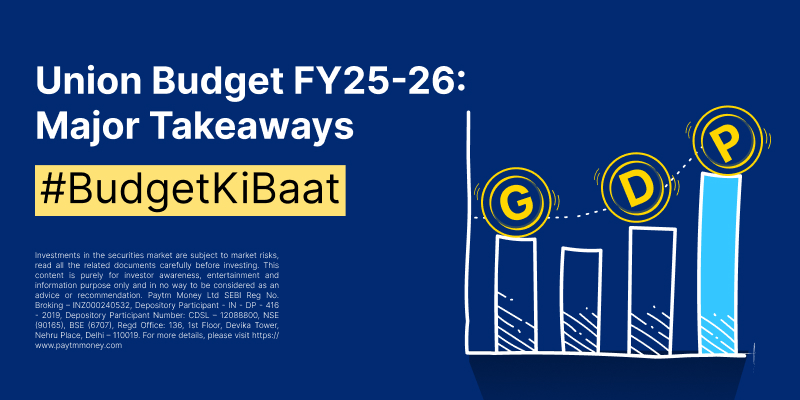Exchange-Traded Funds, or ETFs as their name suggests, are funds traded on the exchange. Similar to mutual funds, it pools money from many investors to invest in a basket of stocks, bonds, or commodities. Generally, ETFs are passive funds that track an index. However, globally there are a few actively managed ETFs too.
The Nifty 50 index that comprises of 50 blue-chip companies represents nearly 67% of the total free-float market capitalisation of all listed equity companies on the NSE.
An investor tracking the Nifty 50 index for investments should keep the portfolio aligned with the periodic changes in the index. This can also be achieved by investing in ETFs that track the Nifty 50.
With ETFs, investors can harness the growth potential of Nifty & Sensex and take their wealth maximization to another level, that too at a minimal cost.
ETFs, mimic the returns of underlying assets such as index, gold, or bonds where investors can earn index-linked returns at a lesser cost. To put it simply, imagine that you walk into a Pizza place and like all the premium pizzas listed on the menu but buying all those would cost you a lot of money, however, there is another option where the restaurant can give you a slice of each premium pizza at a lower cost so that you can get to taste all of those and won’t have to pay a huge amount.
Similarly, you can get exposure to equity indices, gold, and bonds by buying an ETF with as low as Rs. 21.31 per unit, which is the closing price of CPSE ETF on NSE on Dec 16 and you can buy and sell ETFs on exchanges like any stock so that makes ETFs a flexible investment option.
ETFs may help an investor earn returns that closely correspond to a given index. But at the same time, since ETFs are market-linked instruments, the returns aren’t guaranteed and there can be a likelihood of minor variation in fund returns as compared to those of index returns.
If you are looking to diversify your investments, hedge against volatility arising out of global as well as domestic events, or gain exposure to a certain industry or market, then ETFs may be the perfect asset for your portfolio. Investing in ETFs is not as risky compared with other categories of equity instruments, since it carries a beta close to 1. Here are a few benefits of investing in ETFs.
Cost-Efficient
ETFs are passive funds that track indices, gold, or bonds that cost you much less than the underlying assets.
ETFs as an investment product has a lower expense ratio compared to mutual funds given the passive nature of ETFs. Fund management costs are lower, leading to a lower expense ratio, which can generate incremental savings and may increase payouts in the long term.
ETF operation costs are lower because the fund management fees are marginal, also service costs are close to nil because customer service par is taken care of by brokers, fund administrative costs can go down for ETFs. Therefore, ETFs are considered cost-efficient investments.
When users would invest via smaller amounts, the benefit of compounding coupled with low fund management costs would enable him/her to boost the portfolio returns.
Transparent
With ETFs, you can check the fund NAV anytime during market hours. When analyzing an ETF investment you can see the NAV (Net Asset Value) price trade during the trading day. This transparency is far better than the traditional open-ended mutual funds who do not price their funds until day’s end. Investors may not know how much he made or lost until the day’s end with open-ended mutual funds.
Convenient
It is convenient to invest in ETFs as it offers the flexibility of buying and selling at any time. One can also execute intraday trades through ETFs.
With Exchange Traded Funds you don’t have to worry about redemptions, as market trading only leads to the transfer of units and does not shift the AUM. Hence, in the case of index ETFs, the tracking error can be lower than in the case of index funds. Therefore, they serve as a convenient investment option.
Diversification
Diversification is another key benefit that an investor derives from ETF investments. Firstly, one can potentially choose from a wide range of ETFs which mainly differ based on the underlying assets such as gold, equity, or index funds.
ETFs, help you spread investment risk over a number of securities and reduce stock-specific risk. Depending upon the ETF scheme, you can gain exposure to a range of stocks, countries, sectors, commodities, etc in a single transaction.
Trading Flexibility
Along with the flexibility of buying and selling anytime during market hours, ETFs can be traded intraday.
ETFs are bought and sold during the day when the markets are open. The pricing of ETF shares is continuous during normal exchange hours. Share prices vary throughout the day, based mainly on the changing intraday value of the underlying assets in the fund.
ETF investors know within moments how much they paid to buy the units and how much they received after selling.
Conclusion
With Exchange Traded Funds or ETFs wealth creation over a long period of time is easier as they offer flexibility, transparency, and diversification with the convenience of buying or selling at any time on stock exchanges like any other stock. Investing in ETFs is not only relevant for first-time investors who are just at the threshold of their investment journey, but also serves as a good long term strategy for investors.






